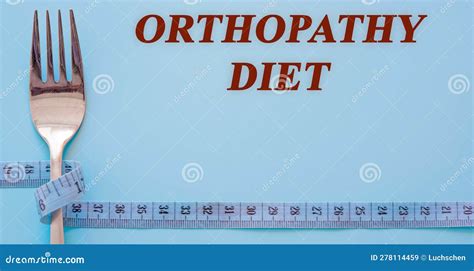Discover the benefits, challenges, and meal plan for the fruitarianism diet. Learn how to understand and transition to this unique dietary lifestyle.
Understanding Fruitarianism Diet
Contents
Fruitarianism diet is a type of vegan diet that primarily consists of fruits. This diet also includes nuts, seeds, and other plant-based foods. The main idea behind fruitarianism is to consume foods that do not require killing the plant, allowing the plant to continue to grow and produce more fruits. Fruitarianism is not only a diet but also a lifestyle, with followers often believing in minimizing harm to living beings and living in harmony with nature.
One of the key principles of this diet is to consume foods that fall off the plant naturally, rather than picking them before they are ripe. This means that fruitarians prefer to eat ripe, fresh fruits and avoid processed or cooked foods. While fruits are the primary source of nutrition in a fruitarian diet, some followers also include leafy greens and other raw vegetables to ensure they are getting a variety of nutrients.
It’s important to note that fruitarianism is often considered an extreme form of veganism and can be challenging to maintain for long periods. While the diet is rich in vitamins, minerals, and fiber due to the high consumption of fruits and vegetables, it may lack in protein, fat, and certain vitamins and minerals. Therefore, it’s essential for fruitarians to carefully plan their meals to ensure they are getting an adequate intake of all essential nutrients.
Overall, understanding fruitarianism diet involves recognizing its focus on consuming primarily fruits, as well as its emphasis on ethical and environmental considerations. It may not be suitable for everyone, but for those who choose to follow this lifestyle, it is essential to research and carefully plan their diet to prevent any nutritional deficiencies.
Benefits of Fruitarianism Diet
Benefits of Fruitarianism Diet
Fruitarianism diet, as the name suggests, revolves around consuming fruits as the primary source of nutrition. This diet is rich in fiber, vitamins, and minerals, making it a popular choice for those looking to improve overall health and well-being.
One of the key benefits of a fruitarianism diet is its ability to promote weight loss. Fruits are naturally low in calories and fat, making them an ideal choice for those looking to shed excess pounds.
In addition, the high fiber content of fruits can help improve digestive health and prevent constipation. Fruits are also rich in antioxidants, which can help reduce the risk of chronic diseases such as heart disease and cancer.
Moreover, the natural sugars found in fruits provide a healthy source of energy without the need for processed sugars or caffeinated beverages. This can lead to more stable energy levels throughout the day, reducing the likelihood of energy crashes.
Transitioning to a fruitarianism diet can also lead to improved skin health. The high water content and nutrient density of fruits can lead to clearer, more radiant skin.
Challenges of Fruitarianism Diet
Challenges of Fruitarianism Diet
Adopting a fruitarianism diet can be an incredibly rewarding experience, but it also comes with its fair share of challenges. One of the major challenges of a fruitarianism diet is the limited food options available. Unlike with other diets, a fruitarian diet restricts you to only consuming fruits, nuts, seeds, and certain vegetables. This can make it difficult to ensure that you are getting all the necessary nutrients and variety in your diet to keep you satisfied and healthy.
Another challenge of a fruitarianism diet is the potential for nutrient deficiencies. While fruits are undoubtedly packed with essential vitamins and minerals, it can be difficult to get enough protein, calcium, iron, and other vital nutrients solely from fruits and vegetables. This can lead to deficiencies and health issues if not carefully monitored and supplemented.
Additionally, one of the challenges of a fruitarianism diet is the social aspect. It can be challenging to find suitable options when dining out with friends or family, and explaining your dietary choices to others can often lead to misunderstandings or judgment. This social pressure can make sticking to a fruitarianism diet challenging for some individuals.
Lastly, transitioning to a fruitarianism diet can also be physically challenging. Many people experience detox symptoms such as fatigue, headaches, and digestive issues as their body adjusts to the new diet. It’s important to be patient and give your body time to adapt to the changes.
Despite these challenges, many individuals find the fruitarianism diet to be incredibly rewarding and beneficial for their health and well-being. It’s important to approach the diet with an open mind and be mindful of these challenges as you make the transition.
Fruitarianism Diet Meal Plan
Embarking on a fruitarianism diet requires careful planning and organization to ensure that you are getting the necessary nutrients and energy to support your body’s needs. Here are some key factors to consider when creating a meal plan for your fruitarian lifestyle.
First and foremost, it is essential to include a variety of fruits in your diet to ensure that you are getting a wide range of nutrients. Incorporating fruits such as apples, bananas, berries, and citrus fruits can provide you with essential vitamins, minerals, and antioxidants that are vital for maintaining overall health.
Additionally, it is important to consider the timing and quantity of your fruit intake. While fruits are a valuable source of natural sugars, it is crucial to consume them in moderation to avoid potential spikes in blood sugar levels. Therefore, portion control and spacing out fruit consumption throughout the day can help maintain stable energy levels and prevent abrupt fluctuations in blood sugar.
Furthermore, it is important to supplement your fruit intake with sources of plant-based protein and healthy fats. Incorporating foods such as nuts, seeds, and avocados can help provide essential macronutrients, as well as contribute to a greater sense of satiety and fullness.
Lastly, it is crucial to stay hydrated by consuming plenty of water throughout the day. In addition to aiding in digestion and transportation of nutrients, maintaining adequate hydration is essential for overall well-being and can help prevent any potential adverse effects of a high fruit diet, such as constipation.
Transitioning to Fruitarianism Diet
Transitioning to a Fruitarianism diet can be a challenging but rewarding journey. This diet is based on consuming predominantly fruits and sometimes seeds, nuts, and other plant-based foods. It is important to approach this transition with careful consideration and planning to ensure that you are meeting all of your nutritional needs.
When transitioning to a Fruitarianism diet, it is important to start slow and gradually increase your intake of fruits and plant-based foods. This will give your body time to adjust to the increased fiber and natural sugars in these foods. It is also important to incorporate a variety of fruits and vegetables into your diet to ensure that you are getting a wide range of vitamins, minerals, and antioxidants.
Another important aspect of transitioning to a Fruitarianism diet is to be mindful of your protein intake. While fruits and vegetables do contain some protein, it is important to ensure that you are getting enough through a variety of plant-based sources such as legumes, seeds, and nuts. Planning your meals and snacks ahead of time can help ensure that you are meeting all of your nutritional needs.
It’s also important to stay hydrated and drink plenty of water when transitioning to a Fruitarianism diet. Fruits and vegetables have a high water content, but it is still important to drink water throughout the day to stay properly hydrated. Lastly, be mindful of any potential nutrient deficiencies that can occur when following a strict fruit-based diet. Consulting with a nutritionist or healthcare professional can be helpful in ensuring that you are meeting all of your nutritional needs during this transition.













